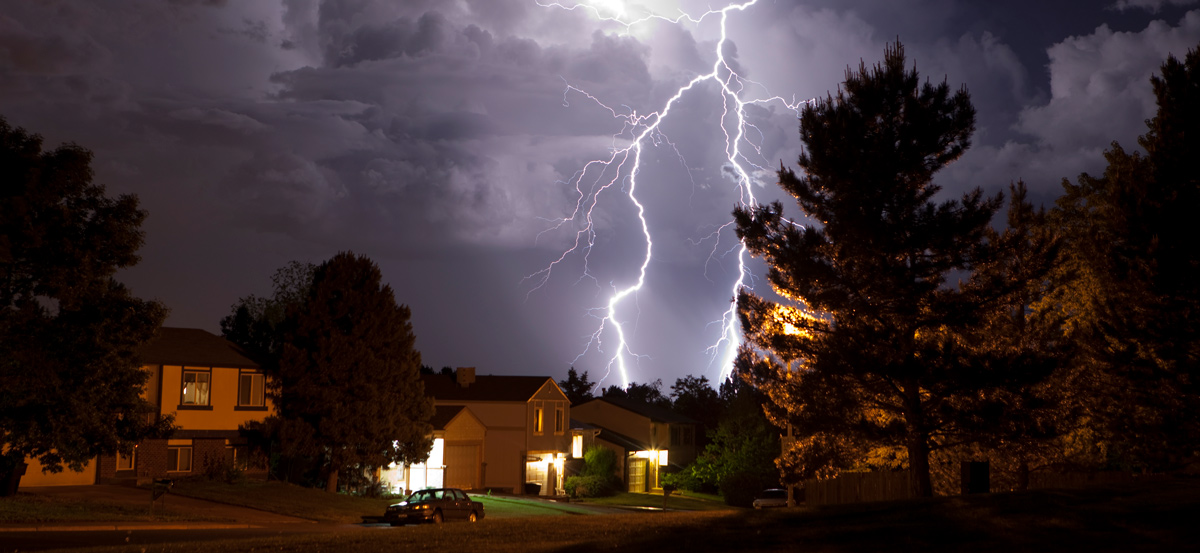Why Electrical Safety Matters
Electrical safety is not just about preventing inconvenient power outages – it's about protecting your family and home from serious hazards. According to the Electrical Safety Foundation International (ESFI), electrical failures cause approximately 51,000 home fires each year, resulting in nearly 500 deaths, 1,400 injuries, and $1.3 billion in property damage.
As a homeowner in Fairfax County, understanding electrical safety is essential. Our team of licensed electricians has compiled these resources based on our experience serving over 1,200 satisfied customers across Northern Virginia. Use these guides to identify potential issues and learn when it's time to call a professional.
Important Safety Notice
The information provided here is for educational purposes only. Always consult with a licensed electrician before attempting any electrical work in your home. If you encounter a situation that seems hazardous, don't take risks – call a professional immediately.
Common Electrical Hazards
Learn to identify these common electrical hazards in your home to keep your family safe.
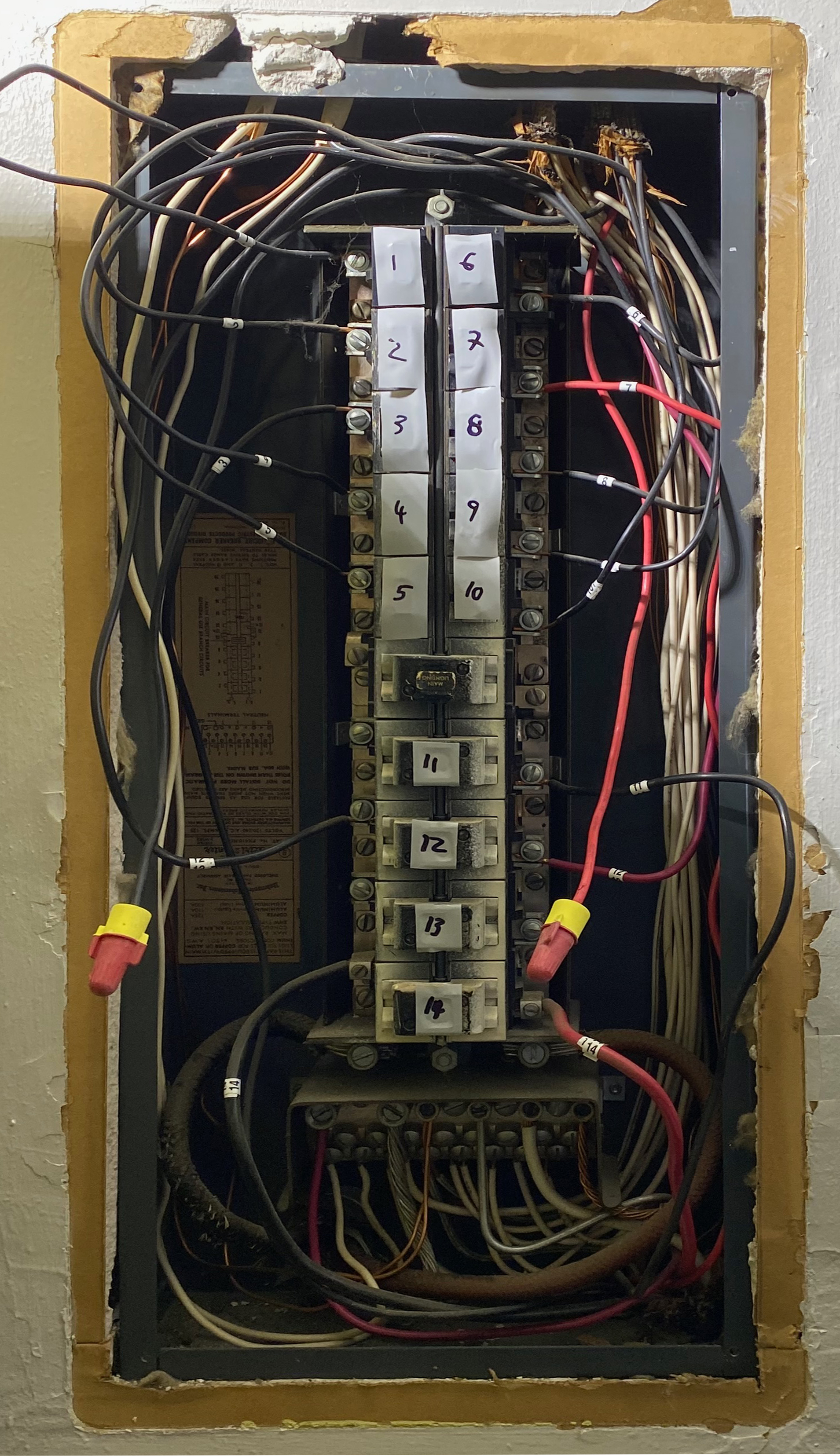
Outdated Electrical Panels
Certain electrical panels, particularly Federal Pacific Electric (FPE) and Zinsco panels installed between 1950-1990, are known fire hazards. These panels may fail to trip properly during overloads, causing fires.
Warning Signs:
- Flickering lights
- Burning smell from the panel
- Warm panel cover
- Frequent circuit breaker trips
- Panel labeled "Federal Pacific," "FPE," or "Zinsco"
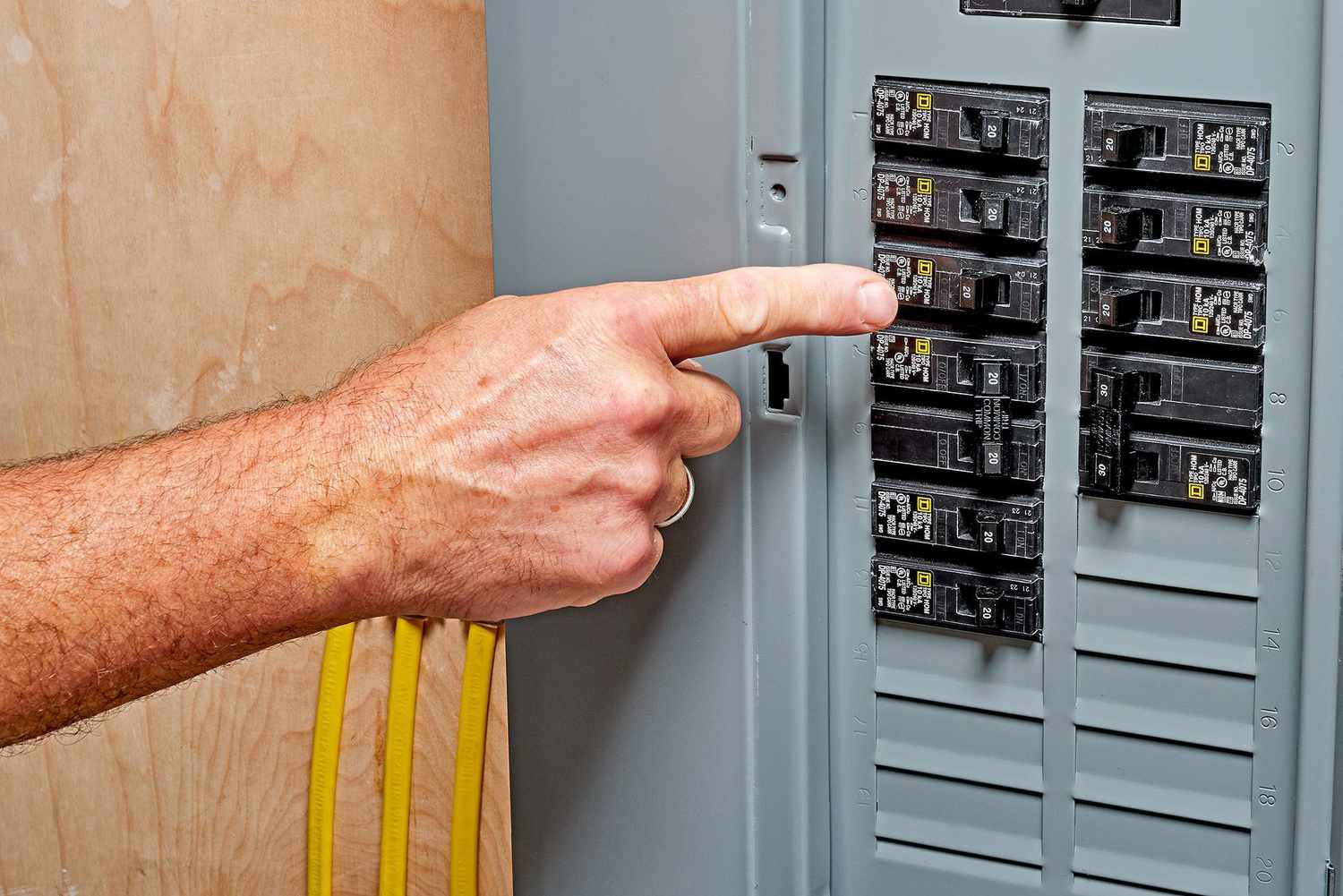
Overloaded Circuits
Overloaded circuits occur when you draw more electricity than a circuit is designed to handle. This is especially common in older homes with fewer circuits or when using multiple high-wattage appliances.
Warning Signs:
- Frequent circuit breaker trips
- Dimming lights when appliances turn on
- Warm wall plates
- Buzzing sounds from outlets
- Burning smell
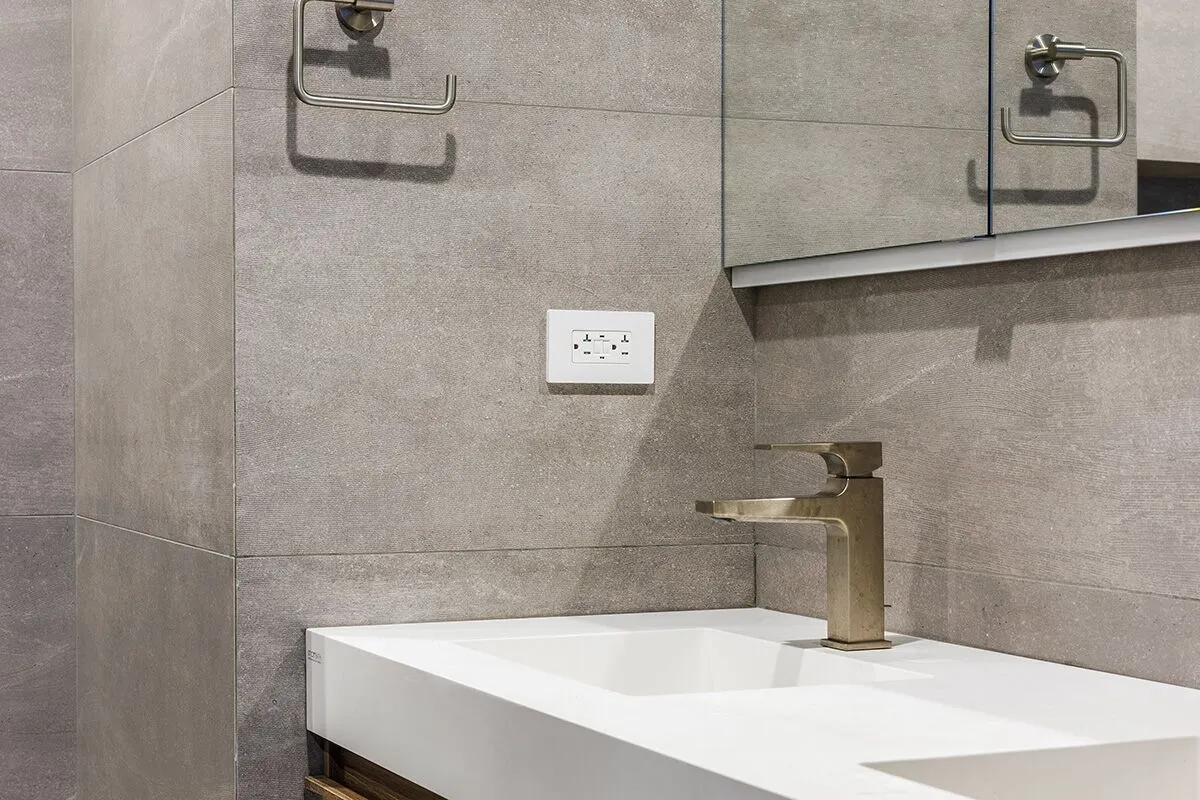
Inadequate GFCI Protection
Ground Fault Circuit Interrupters (GFCIs) protect against electric shocks by quickly cutting power when they detect current leakage. They're required in wet locations like bathrooms, kitchens, and outdoors.
Areas Requiring GFCIs:
- Kitchens (countertop areas)
- Bathrooms
- Garages and accessory buildings
- Outdoor receptacles
- Crawl spaces and unfinished basements
- Laundry areas and utility sinks
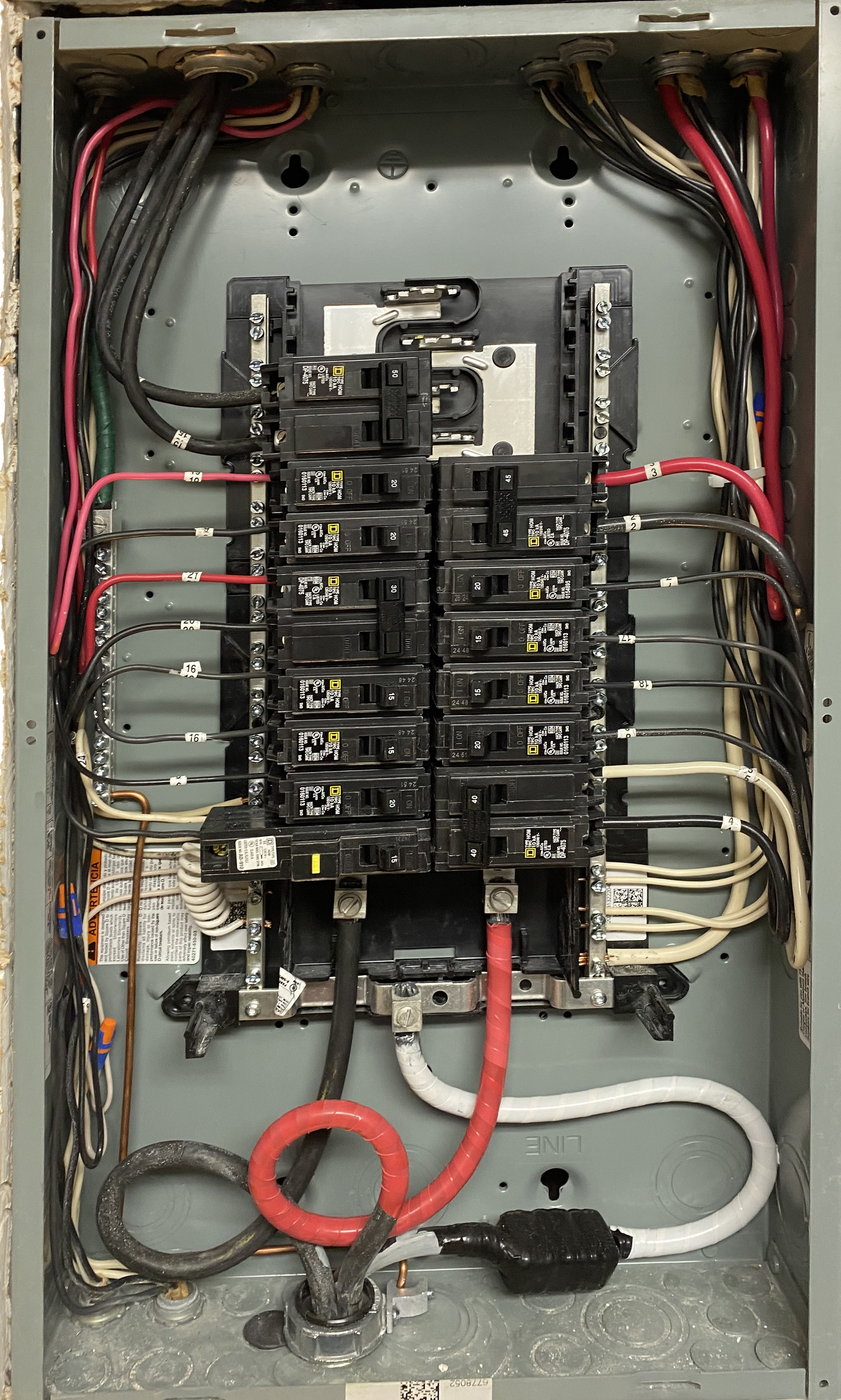
Outdated Wiring
Homes built before 1980 may have aluminum wiring or knob-and-tube wiring, which can deteriorate over time and pose fire hazards. Modern devices and appliances require updated wiring for safety.
Warning Signs:
- Frequently blown fuses or tripped breakers
- Discolored outlets or switches
- Burning smell
- Visible frayed or damaged wires
- Two-prong ungrounded outlets

Extension Cord Hazards
Extension cords are meant for temporary use. Permanent use, improper sizing, or daisy-chaining can create fire risks. Using extension cords as a long-term solution indicates you need additional outlets.
Safety Tips:
- Never run cords under carpets or furniture
- Don't daisy-chain multiple cords
- Use appropriate gauge for the load
- Replace damaged cords immediately
- Consider installing additional outlets
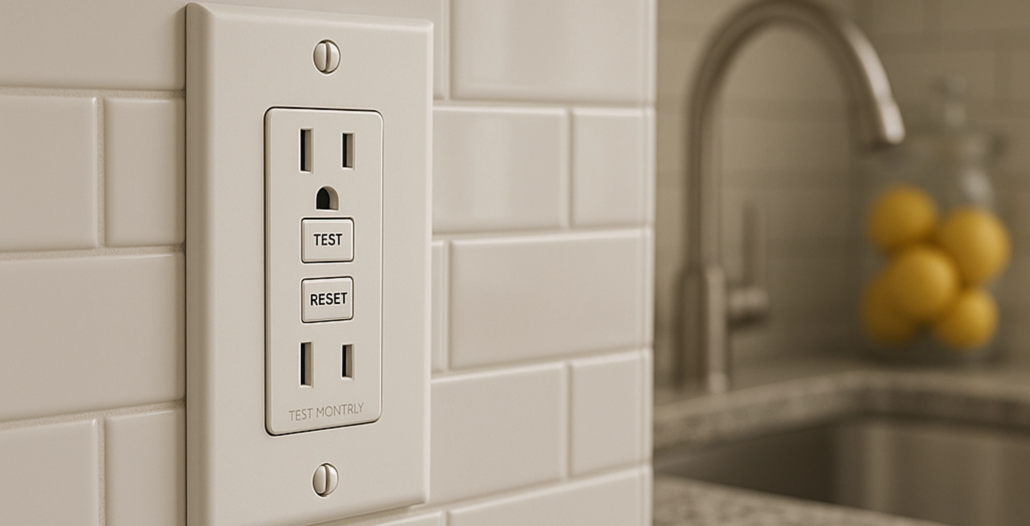
Water and Electricity
Water and electricity create a dangerous combination that can lead to electrocution. Special precautions must be taken in kitchens, bathrooms, and outdoor areas to prevent water contact with electrical components.
Safety Tips:
- Ensure GFCI protection in wet locations
- Use weather-resistant covers outdoors
- Keep cords and devices away from water
- Never handle electrical items with wet hands
- Use appliance leakage current interrupters (ALCIs)
Warning Signs of Electrical Problems
Recognizing these warning signs early can prevent dangerous situations and expensive repairs.
Frequent Circuit Breaker Trips
If your circuit breakers trip repeatedly, it's often a sign that the circuit is overloaded or there's a more serious wiring issue. This is your electrical system's way of preventing overheating and potential fires.
What to do: Reduce the load on that circuit by unplugging devices. If the problem persists, contact a licensed electrician to evaluate your electrical system.
Flickering or Dimming Lights
Lights that flicker or dim when appliances turn on indicate your electrical system is struggling to meet demand. This can be due to loose connections, overloaded circuits, or outdated wiring.
What to do: Note when the flickering occurs and which appliances trigger it. This information will help an electrician diagnose the issue accurately.
Warm or Discolored Outlets
Outlets or switches that are warm to the touch, discolored, or emit a burning odor indicate dangerous overheating. This can be caused by loose connections, improper wiring, or arc faults.
What to do: Stop using the outlet immediately and turn off the circuit at your electrical panel. This requires immediate attention from a professional electrician.
Buzzing Sounds
Electrical components should operate silently. Buzzing, sizzling, or crackling sounds from outlets, switches, or the electrical panel can indicate loose connections, arcing, or other serious problems.
What to do: Identify the source of the sound but don't investigate further yourself. Contact a licensed electrician promptly to inspect the issue.
Burning Smell
A burning smell with no obvious source is a serious warning sign of electrical problems. This smell often indicates that wire insulation is melting, which is a fire hazard.
What to do: If you can safely do so, turn off power at the main circuit breaker. This is an emergency situation requiring immediate professional help.
Electrical Shocks
Feeling even a mild shock when touching appliances or outlets indicates a serious electrical problem. This could mean improper grounding, water intrusion, or damaged wiring.
What to do: Stop using the problematic appliance or outlet immediately. Have a licensed electrician inspect the issue as soon as possible.
Home Electrical Safety Checklist
Use this checklist to perform a basic safety assessment of your home's electrical system.
Monthly Checks
Test all GFCI outlets by pressing the "Test" button and then "Reset"
Test smoke detectors and carbon monoxide detectors
Check for frayed cords on appliances and devices
Inspect extension cords for damage and ensure they're not overloaded
Quarterly Checks
Visually inspect your electrical panel for rust, moisture, or discoloration
Check that panel breakers are labeled correctly and legibly
Inspect outlets and switches for damage, discoloration, or looseness
Check outdoor electrical equipment for weather damage
Annual Professional Inspection
Schedule a comprehensive electrical safety inspection by a licensed electrician
Have surge protectors and whole-house surge protection systems checked
Review any electrical panel upgrades or additional circuit needs
Review and update family emergency plans for electrical fires or outages
Electrical Emergency Response
Know what to do when electrical emergencies occur to keep your family safe.
Electrical Fire Response
- If safe to do so, turn off power at the circuit breaker or main panel.
- Call 911 immediately from a safe location.
- Only use a Class C fire extinguisher rated for electrical fires.
- Never use water on an electrical fire.
- Evacuate immediately if the fire cannot be quickly contained.
Electric Shock Response
- Do not touch the person if they are still in contact with the electrical source.
- Turn off power at the circuit breaker if possible and safe to do so.
- Call 911 immediately.
- If the person is not breathing, begin CPR if you are trained.
- Keep the person warm and still until emergency services arrive.
Downed Power Line Safety
- Stay at least 35 feet away from downed power lines.
- Call 911 and your power company immediately.
- Never touch a downed line or anything in contact with it.
- If a power line falls on your car, stay inside the vehicle until help arrives.
- If you must exit the vehicle due to fire, jump clear without touching the car and ground simultaneously, then shuffle away with small steps.
Power Outage Safety
- Check if the outage affects just your home or the neighborhood.
- Check your electrical panel for tripped breakers.
- Report the outage to your utility company.
- Unplug sensitive electronics to protect from power surges when electricity returns.
- Use flashlights instead of candles when possible to reduce fire risk.
